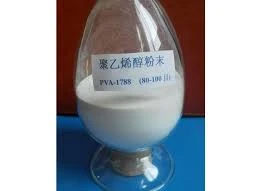The Significance of Construction Gypsum Powder in Modern Building Materials
Construction gypsum powder, commonly known as gypsum, is a versatile material widely utilized in the construction industry. Its unique properties and benefits make it an essential component for various building applications, ranging from plastering walls to producing drywall and other architectural elements. Understanding the significance of gypsum powder in construction not only highlights its functionality but also emphasizes its role in promoting sustainable building practices.
Gypsum is a naturally occurring mineral composed of calcium sulfate dihydrate. When heated, it loses water and transforms into a fine powder, commonly referred to as calcined gypsum or gypsum powder. This powder serves multiple purposes in construction due to its excellent binding properties and ease of application. One of its primary uses is in the production of drywall or plasterboard, which has become a standard material for wall and ceiling construction. Drywall is favored for its lightweight nature, fire-resistant properties, and ability to provide a smooth finish for interior surfaces.
Furthermore, gypsum powder is also key in the formulation of plaster. When mixed with water, it forms a paste that can be applied to surfaces for both aesthetic and practical purposes. Gypsum plaster is known for its quick setting time, which accelerates the construction process, allowing builders to achieve a smooth and level surface efficiently. The use of gypsum plaster helps reduce the environmental impact of construction, as it can be sourced sustainably and is fully recyclable.
construction gypsum powder

Another significant advantage of construction gypsum powder is its ability to improve indoor air quality. Gypsum has the unique ability to absorb and release moisture, helping to maintain balanced humidity levels within buildings. This moisture regulation contributes to a healthier indoor environment by preventing mold growth and ensuring a comfortable living space. Additionally, certain types of gypsum products are manufactured with additives that can help reduce volatile organic compounds (VOCs) in the air, further enhancing indoor air quality.
Moreover, the fire-resistant characteristics of gypsum powder make it a critical component in passive fire protection systems. Gypsum acts as a barrier against fire spread; when subjected to high temperatures, it releases water vapor, which helps to cool the surrounding materials and delay the onset of combustion. This property makes gypsum an essential material for fire-rated walls and ceilings, ensuring enhanced safety in residential and commercial buildings.
In addition to its practical uses, gypsum powder plays a vital role in sustainable construction practices. The production of gypsum usually involves less energy compared to other building materials, and it contributes to waste reduction when used in renovation and remodeling projects, as old gypsum materials can be recycled into new products. By opting for gypsum-based solutions, builders can support eco-friendly construction methods and contribute to reducing the carbon footprint of building projects.
In conclusion, construction gypsum powder is a valuable material that exemplifies the intersection of functionality and sustainability in the construction industry. Its wide array of applications, from drywall to plaster, combined with its beneficial properties such as moisture regulation and fire resistance, make it an indispensable component in modern building practices. As the construction industry continues to evolve, gypsum powder will undoubtedly remain a key player in creating efficient, safe, and environmentally friendly structures.
-
Rdp Powder: Key Considerations for Wholesalers in the Building Materials IndustryNewsJul.08,2025
-
Key Considerations for Wholesalers: Navigating the World of Hpmc - Based ProductsNewsJul.08,2025
-
Hpmc Detergent: Key Considerations for WholesalersNewsJul.08,2025
-
Key Considerations for Wholesalers: China Hpmc For Tile Adhesive, Coating Additives, Concrete Additives, and MoreNewsJul.08,2025
-
Crucial Considerations for Wholesalers: Navigating the World of Construction MaterialsNewsJul.08,2025
-
Key Considerations for Wholesalers Sourcing Additive For Cement, Additive For Concrete, Additive For Putty from Additive Manufacturer Shijiazhuang Gaocheng District Yongfeng Cellulose Co., Ltd.NewsJul.08,2025




